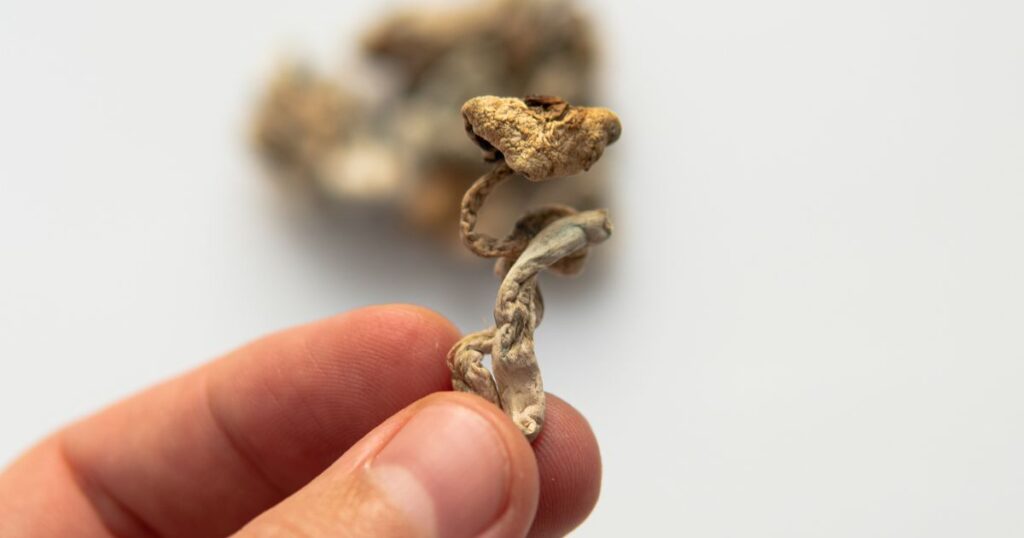Pennsylvania lawmakers recently met to discuss psilocybin therapy as a potential game-changer for treatment-resistant depression. The House Democratic Policy Committee hearing highlighted research and personal stories, aiming to revolutionize mental health care in the state.
Testimony revealed statistics about the current mental health crisis. Approximately 21 million American adults suffer from major depressive disorder, with roughly one-third qualifying as having treatment-resistant depression (TRD). This condition affects patients who remain severely depressed despite trying two or more adequate courses of approved antidepressant medications.
Personal Stories Drive Policy Discussion
Ryan Gardill, a Marine Corps veteran and president of the Manheim Township Professional Firefighters Association, provided testimony about his journey with post-traumatic stress and severe clinical depression following his deployment to Afghanistan’s Sangin Valley.
After attempting suicide in 2015, Gardill talked about the urgent need for alternative treatments beyond traditional therapies and medications that often produce side effects worse than the original symptoms.
His perspective carries particular weight given the alarming statistics within the fire service: firefighter suicides occur at nearly twice the rate of line-of-duty deaths annually.
Gardill advocated for unconventional solutions to complex mental health challenges, stating that firefighters who assist the public on their worst days deserve similar innovative support for their own mental health crises.
Brett Waters, co-founder of the advocacy group Reason for Hope, shared his personal experience as a multi-generation suicide loss survivor. After losing his mother to suicide following her battle with depression, Waters described how psilocybin helped alleviate his long-standing anxiety-based eating disorder in ways that traditional treatments could not achieve.
His testimony highlighted the limitations of commonly prescribed antidepressants and the potential for psychedelic therapy to provide rapid, durable relief.
Scientific Evidence Supporting Psilocybin Therapy
The hearing also featured scientific evidence about psilocybin’s therapeutic potential. Dr. Michael Thase, a professor of psychiatry at the University of Pennsylvania’s Perelman School of Medicine who specializes in treatment-resistant depression, talked about psychedelic drugs like psilocybin typically demonstrate effectiveness within days of initial treatment, contrasting sharply with traditional antidepressants that require weeks to show results.
Research presented during the testimony revealed that psilocybin therapy benefits may last up to six months following treatment, offering hope for patients who have exhausted conventional options.
The FDA has awarded psilocybin multiple Breakthrough Therapy designations for treatment-resistant depression and major depressive disorder, indicating its potential to be significantly more effective than existing treatments.
Compass Pathways, a biotechnology company conducting the largest FDA-regulated clinical trials studying psilocybin’s safety and efficacy, presented data from their COMP360 synthetic psilocybin trials.
Ryan Bastle, the company’s Senior Medical Science Liaison, reported positive results from a 233-participant Phase 2 trial published in the New England Journal of Medicine, followed by successful completion of their first Phase 3 trial involving 258 participants.
Economic and Social Impact Considerations
The testimony also talked about larger implications beyond individual patient outcomes. Dr. Daniel Orr said that treating depression and mental illness helps improve every other type of medical condition while reducing long-term healthcare costs.
He noted that insurance companies and governments often overlook the long-term benefits of effective mental health treatment, including increased workplace efficiency, reduced accidents, and fewer divorces.
Treatment-resistant depression creates significant economic burden through higher healthcare costs, increased disability expenses, and elevated absenteeism from work.
Patients with TRD face greater risks of suicidal ideation and completed suicide, with 40% reporting suicidal thoughts within the past year. The condition also increases vulnerability to cardiovascular disease, diabetes, obesity, and other serious medical complications.
Future Accessibility and Implementation
Witnesses advocated for Pennsylvania to establish automatic rescheduling mechanisms for FDA-approved controlled substances, rather than limiting legislation to psilocybin alone. Waters recommended this approach to avoid bureaucratic delays and ensure timely patient access to potentially life-saving treatments.
Several states have already invested in psychedelic research programs, with Texas allocating $2 million for psilocybin trials for veterans with PTSD and Illinois appropriating $6 million for breakthrough therapies targeting veteran suicide prevention. These examples demonstrate growing recognition of psychedelic therapy’s potential across different political landscapes.
The testimony suggested that FDA approval for at least one psilocybin therapy could occur within the next couple of years. However, the specialized treatment requirements and protocols will likely create significant cost barriers, making insurance coverage crucial for patient accessibility.
Meanwhile, the DEA has also requested a psilocybin rescheduling review, signaling growing momentum toward broader acceptance of psilocybin-based treatments.
Transforming Mental Healthcare Paradigms
Pennsylvania’s legislative hearing is a significant step toward embracing innovative mental health treatments that could change therapeutic approaches. The testimony demonstrated how psilocybin therapy offers hope for patients who have exhausted conventional options, potentially providing rapid relief where traditional treatments have failed.
The personal accounts from veterans, first responders, and suicide loss survivors created compelling narratives that transcend political divisions. Their experiences illustrate how evidence-based psychedelic therapy could address not only individual suffering but also other public health challenges affecting communities across Pennsylvania.
As research continues to look into psilocybin’s safety and efficacy, Pennsylvania lawmakers face the opportunity to position the state as a leader in mental healthcare innovation.
The testimony provided a foundation for informed policy decisions that could ultimately save lives and reduce the devastating impact of treatment-resistant depression on individuals, families, and communities throughout the state.






















